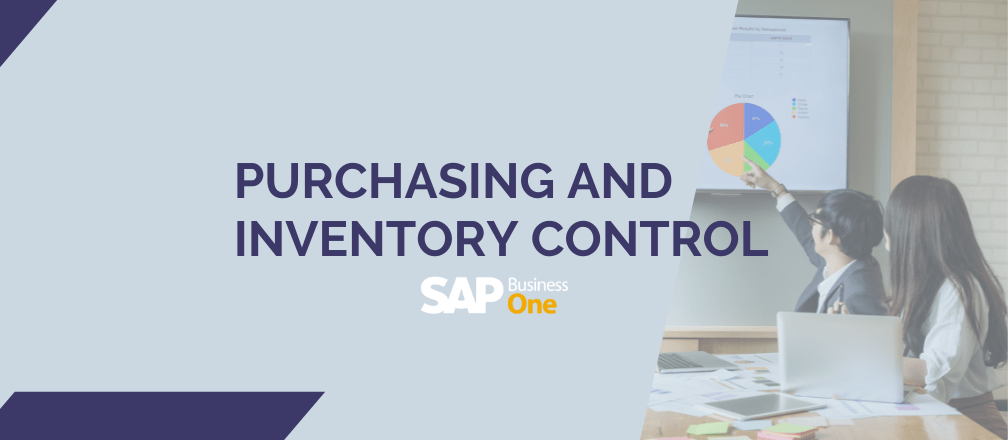Purchasing and Inventory Control in SAP Business One

SAP Business One is an enterprise resource planning (ERP) software solution designed for small and medium-sized businesses. It offers various modules to manage different aspects of a business, including purchasing and inventory control.
Here’s an overview of how purchasing and inventory control work in SAP Business One:
Purchase Requisition:
- When a department or user identifies the need for certain items, they can create a purchase requisition in SAP Business One.
- The requisition includes details like the required items, quantities, and any specific instructions.
Purchase Order:
- Based on the purchase requisition, authorized users can generate purchase orders.
- The purchase order includes information about the vendor, items to be purchased, quantities, prices, delivery dates, and other relevant terms.
- Once the purchase order is created, it can be sent to the vendor electronically or in print.
Goods Receipt:
- When the ordered items are received, you can generate a goods receipt in SAP Business One.
- The goods receipt records the actual quantities received and compares them to the quantities ordered.
- This step updates your inventory levels and triggers accounting entries for the received items.
Accounts Payable:
- SAP Business One updates the accounts payable module when the receipt of the goods is recorded.
- It creates an accounting entry for the received items, reflecting the vendor’s invoice amount, payment terms, and due dates.
Inventory Control:
- SAP Business One provides tools to manage inventory levels effectively. It tracks item quantities, locations,
- Stock movements, and valuation methods like LIFO, FIFO, and Moving average.
- You can perform inventory counts, issue stock transfers, track serial numbers or batch numbers, and manage stock levels to ensure optimal inventory control.
Reporting and Analysis:
- SAP Business One offers various reports and analytics to help you monitor purchasing and inventory performance.
- You can access reports such as purchase orders, goods receipts, vendor analysis, inventory valuation, aging reports, and more.
Write-Up:- These reports provide insights into purchasing trends, stock availability, vendor performance, and overall inventory management.
SAP Business One provides a comprehensive set of tools for purchasing and inventory control, allowing businesses to streamline their procurement processes, track inventory accurately, and make informed decisions based on real-time data

